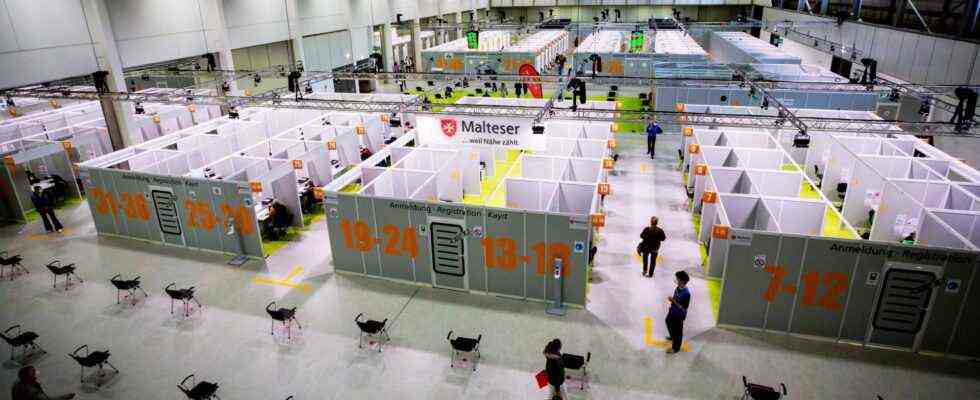analysis
Status: 07/08/2021 8:34 p.m.
The vaccination campaign in Germany is slowly losing momentum. Incentives could be an element to convince the undecided, analyzed Gabriele Intemann. But even then it shouldn’t be easy.
An analysis by Gabriele Intemann,
ARD capital studio
According to the Robert Koch Institute, 85 percent of those aged between 12 and 60 would have to be vaccinated because of the Delta variant. Only then would the number of infections not rise again so strongly in autumn that the hospitals would be burdened.
Currently, just 40 percent are fully vaccinated. So there is still a long way to go before what is known as herd immunity. Especially since some cannot be vaccinated at all because they are pregnant or ill, and up to 16 percent do not want to be vaccinated under any circumstances. In order to achieve 85 percent, almost all who are undecided would have to be vaccinated.
That is why the authorities want to reach above all those who are not actively trying to get a vaccination – because they have little time, because they shy away from bureaucracy, because they are too comfortable or believe that they can get through the pandemic without a vaccination.
Three strategies against vaccination fatigue
A study by the Humboldt University of Berlin in May askedwhat could change the mind of the undecided. Three strategies were suggested: giving back freedom to vaccinated people, vaccinating at the GP and financial incentives. The result: Each of the three variants can increase the willingness to vaccinate by around five percent. Together, the measures would bring a 13 percent higher vaccination rate, say the researchers.
The first point – more freedom for vaccinated people – has already been fulfilled. Those who have been vaccinated are treated the same as those who have been tested and those who have recovered. You can go to restaurants and the cinema without a test, and traveling is much easier with a vaccination certificate than without. Can there be more, for example the elimination of the mask requirement? Perhaps, but as long as many are not fully protected from the virus, that would be very risky.
Vaccinate where the people are
The second point – vaccination by the family doctors – needs to be explained: At the time of the study, the family doctors were not even included in the vaccination campaign. And the researchers have found that many older people in particular prefer to have their family doctor vaccinated. Applied to other population groups, this could mean creating low-threshold, local offers and vaccinating where people are anyway, ideally without an appointment and a lot of bureaucracy. Many federal states are already doing that. They go to the city districts and to socially disadvantaged areas.
The low-threshold offers can, however, be expanded much further: by having vaccination teams not wait for people to come to them, but rather by going to the people with the syringe. It could be vaccinated in shopping centers or pedestrian zones, on the party mile, in front of the concert hall or soon before a football game.
Vaccination Rewards and Lotteries
The third point of the study – financial incentives – could motivate more undecided. It would have to be at least 50 euros, say the researchers. The exact incentives that work presumably depend on the target group. Some may directly motivate money or a voucher, others may be more receptive to concert or festival tickets or free entry to the amusement park. And a lottery with valuable prizes in kind could probably persuade one or the other to decide on a vaccination. Nevertheless, there is a risk here: some could be deterred by advertising with prizes and prizes. For most of them, however, good arguments and easy-to-reach vaccination offers should suffice.

